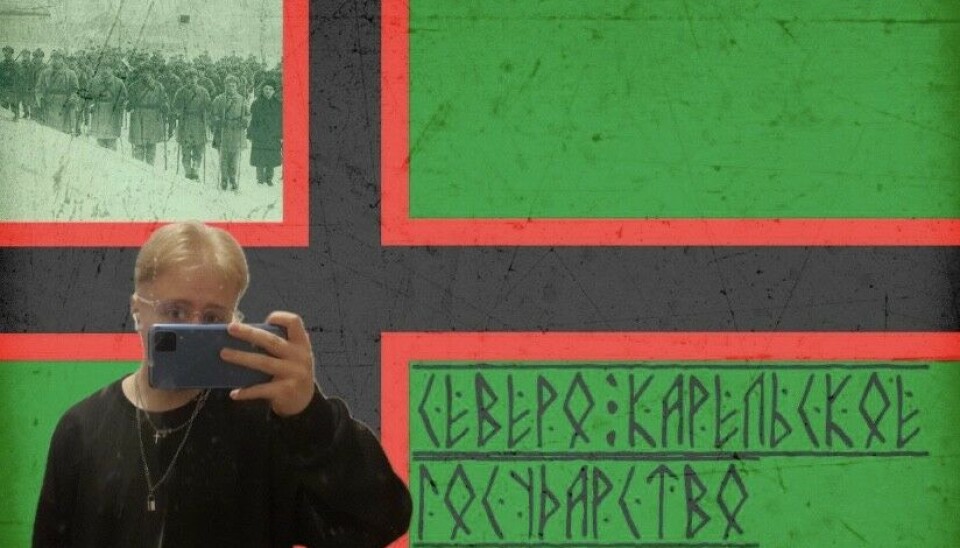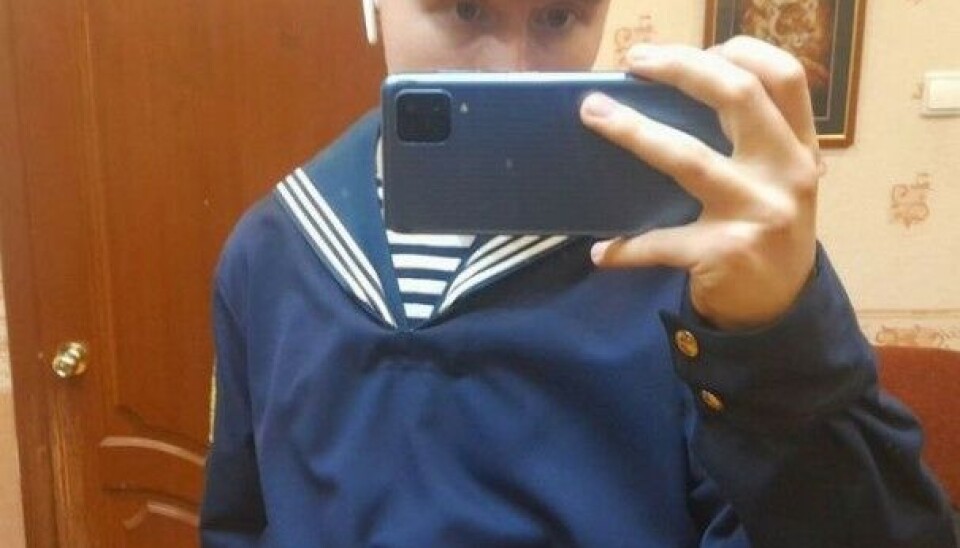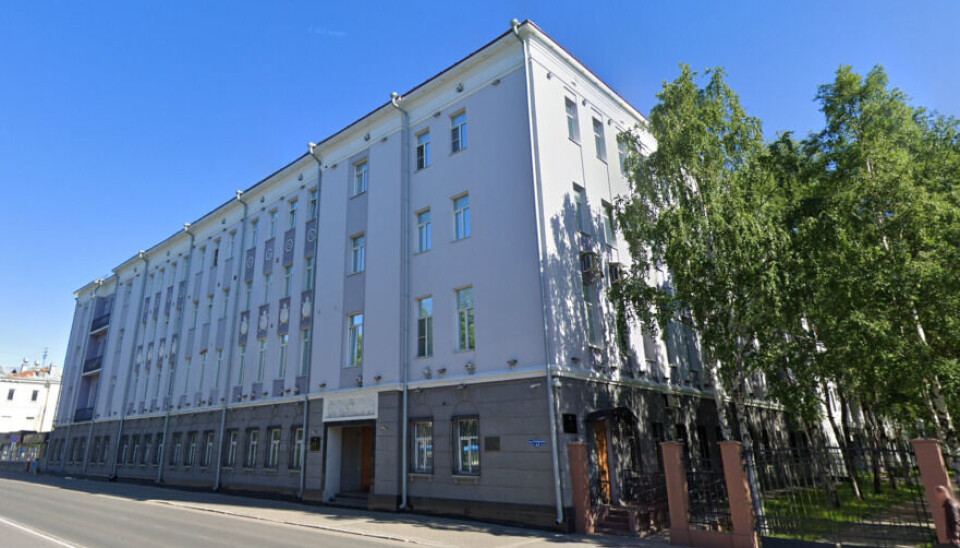
“What, you decided to go against Russians?” 18-year-old activist had to flee Russia after FSB interrogation
18-year-old Nikita Goldin from Arkhangelsk was interrogated by FSB officers twice for running a telegram channel in which he talked about the language and culture of the peoples of Komi and Pomorie, and for talking to his buddies who actively supported Ukraine. Godin was detained right at the Northern Arctic Federal University, an educational institution that has repeatedly demonstrated its loyalty to the authorities and cooperated with the FSB. The security agents threatened Nikita and also took away his equipment and documents. The political pressure forced the young man to leave Russia. His is safe now. The Barents Observer tells the story of Nikita's persecution.
Karelian and Komi activist Nikita Goldin is 18 years old, he was born and raised in Arkhangelsk. Last year, he enrolled in the Higher School of Fisheries, part of Northern Arctic Federal University (NArFU). One day, when Nikita came to class, FSB officers were already waiting for him there.

“The lecturer got a call and I went to room 211, where they told me: “Hello, this is the FSB for the Republic of Karelia, follow us out,” Nikita says in an interview with The Barents Observer.
They took Nikita to the FSB headquarters on Troitsky Avenue in Arkhangelsk. There the young man was interrogated, but it is still unknown what the case was.
“We went into a special room, where one of the operatives said to me: “Does the call sign “Forest” remind you of anything?” I once filled out a form to go fight in Ukraine and put in this call sign. But I did it as a joke, I had no intention of going anywhere. I sent this questionnaire to a guy who is already in detention. Then the investigator asks: “Well, how do you like Ukraine?” I didn’t even understand what I was signing, but I signed everything. I was so terrified, my hands were shaking. They started interrogating me about what I was doing in the Karelian National Movement. I told them that I only focused on language and culture, and also wrote about politics. I was questioned as a witness, but I don’t know what the case was.”

“I was scared and didn’t understand what happened. They put me in a car, it had license plates of the Republic of Karelia. I got my phone out, but the officer immediately took it away from me.
Two hours after the interrogation, Nikita was taken home to have his place searched. He was not shown any warrant for this.
“They said to me: “Either we come to your place in the evening with the special forces and break down your f***g door, or you will go with us and we will search everything peacefully,” Nikita told the The Barents Observer. “I didn’t want those bastards to scare my mom, so I agreed to the second option. During the search, they asked me to log into Vkontakte (Russian social media platform) from my computer and show my browser history. They confiscated the hard drive, flash drive, birth certificate and high school diploma, and the phone that had been taken from me earlier was not returned either.
“I had no particular focus – I took on language, history, and politics at the same time,” says Nikita. “I participated in the “Alliance of Indigenous Peoples” where I represented the Arkhangelsk region. I also ran the Pomorskaya Sloboda channel. We wrote about autonomy, language and culture.”
Nikita says, the majority of security officers’ questions were in connection with his acquaintance, Andrei Vasyurenko, who is now in a pretrial detention center on charges of “incitement to treason.”
“The FSB showed me a video with my acquaintance, Andrei Vasyurenko, and he had tears in his eyes. He told me [on video]: “Hi Nikita. I’m at SIZO (pretrial detention center). I am cooperating with the investigation. I advise you do the same. Save the boys. Western intelligence services tried to recruit us, and we are like bargaining chips for them.” I was again asked if I had anything to do with the organizations that form the national battalions. I answered no. The investigator simply took the interrogation paper from me and forced me to sign it. Then they asked me provocative questions: “Why don’t you like Russians?”, “What, did you decide to go against Russians”? I was on the verge of crying. I said again that I had no intention of going anywhere. I asked for water many times, asked to go to the toilet. They even forbid me to lock myself in the toilet, but I simply washed off my tears there.
After the first interrogation, which lasted almost 10 hours, Goldin was allowed to go home on condition he would report to the FSB the next day. On September 28, the investigator interrogated Godin about his acquaintance Maxim Aramilev, who is now in a pretrial detention center on charges of preparing to set fire to a military registration and enlistment office.
“They told me: “Now you’re going home, you sleep it off, and if you don’t come at 10 o’clock tomorrow, you’re screwed,” Nikita said.
“I only talked with Aramiev online. He lived in Perm, and I lived in Arkhangelsk. During this interrogation, I wrote that I helped Aramilev set fire to the military registration and enlistment office. I asked the investigator several times what they would do with me. The investigator replied that he did not know and that it was not he who decided. I wrote several confessions in Aramilev and Vasyurenko cases, then they asked me to read them out on camera. The security agents also asked to say “Glory to Russia” at the end of the video. After that, the operative said that they would call me in on October 17. I was afraid and waited for this date, but no one called me.
Some time after waiting for the next call for interrogation, Nikita Goldin decided to leave Russia.
“On my way out of Russia, I was very nervous. At the border they didn’t want to let me through because my passport had been chewed by a dog, but eventually everything worked out.”
Now Goldin is safe and plans to start a life in one of the EU countries. However, the young man is at a loss due to all the stress. “I see that I have lost my future. I don’t know what tomorrow will bring. I don’t know what to do with my studies,” Nikita told The Barents Observer.














